Season Review: Paradise PD Season One
They had to know what we’d think of this… right?
I’m very conflicted when it comes to Netflix’s latest offering, Paradise PD. It comes courtesy of Waco O’Guin and Roger Black, creators of Brickleberry, a similar raunchy comedy about park rangers that aired on Comedy Central from 2012 to 2015. My problem is that the show seems to be exactly what it wants to be, but I truly loathed every minute of the five-hour ordeal that was watching it.
The story, what there is of it, concerns Kevin Crawford (David Herman), a slow-witted, feckless man-child who dreams of being a police officer, just like his father, Police Chief Randall Crawford (Tom Kenny of Spongebob fame). Randall has reason to doubt his son’s abilities, however, as Kevin shot off both of the Chief’s testicles years prior. Kevin joins the force—consisting of Sarah Chalke as the rageaholic Gina, Kyle Kinne as a drug-addled drug dog, Cedric Yarborough as a black cop with PTSD, and Dana Snyder pulling double duty as the fat and simple Officer Dusty and the crotchety Officer Hopson—just as a drug kingpin threatens the tenuous order that’s kept the white working class town afloat thus far.
I feel like I shouldn’t even have to say it, but they made the thing, so I guess I do. A show about the police not only being bad at their jobs but gleefully indulging in abuses of power is just about the last thing the discourse needed right now. Who was asking for this? Why did they make it? It’s obvious that the show’s creators live to get a rise out of people like me, but I think they really bought into their own hype on this one. While, at its core, the series is the asinine, shit-stirring drunk you think it is, swinging wildly at anything and everything that moves, on more than one occasion, it really seems to think it’s adding something to our national conversation, albeit the same having-an-opinion-is-dumb nihilism Matt Stone and Trey Parker usually peddle. But, Paradise PD, I watched over a dozen seasons of South Park. I know South Park. At one point, I even liked South Park. Paradise PD, you are no South Park.
While Paradise PD does the same sexist, racist, homophobic, ageist, ableist, fat-shaming, I’m sure I’m forgetting a few shtick as its Coloradan counterpart, (it also has the most convincing bad faith “we make fun of everyone equally” cover by setting the whole thing in a predominantly white hick town) it has none of the former’s relatively moral center, but I don’t think they care. We’re firmly in late Family Guy territory here. Every one of these characters is a terrible person, and the viewer is left to wallow in the excesses and indulgences of the unbridled fantasies of a room full of white dudes. It’s nothing we haven’t seen before, and we’ll certainly see it again before the year is out.
As such, the show doesn’t so much have characters as vague person-shaped stereotypes that the writers bend to their will to make a series of random pop-culture based jokes do whatever their approximation of “working” is. People are willing to sleep with a random pensioner in one episode, but then spend the next doing everything they can to get out of a dark web sale of their virginity. Traits are remembered only when they serve whatever purpose they need to at the moment.
This wouldn’t be so bad if the show didn’t also try to be sequential, but Bojack Horseman and Rick and Morty do it, so I guess we all have to now. The flimsy mystery at the center of the show really works against the one-off nature of the characters and vice versa. It has the effect of making me completely unsure whodunit, but not for any of the reasons a fair-play mystery would want. I can’t guess who has motive if none of the character motivations is consistent from episode to episode.
Sarah Chalke comes out looking the worst in this. She’s underserved by the material, as she almost always is, but her distinct voice can’t help but draw Rick and Morty comparisons, and it’s not flattering. Paradise PD goes in some high concept directions at times, summoning Satan and featuring a talking car, but these premises play out fairly predictably and end up looking like the kind of thing Harmon and Roiland tossed out on day one of tackling the same ideas.
Paradise jumps from topic to topic like it doesn’t think it’s going to get a second season, and based on the fact that it wasn’t plastered all over the front page of Netflix today, I don’t know if it will. After watching a few episodes in a row, though, some motifs emerge. I checked, there is not a single episode that doesn’t have a black joke in it. Most have multiple. Similarly, Kathy Griffin gets dragged no less than four times in ten episodes. Did she turn one of the writers down at a party? Finally, homosexuality is always a punch line, and it’s obvious that none of the writers are gay themselves, based on the outdated depictions of gay culture (leather daddies, effete voices, the works) that permeate the entire show.
Speaking of ubiquity, putting this show on Netflix was like telling a slumber party full of sixth-grade boys that the host’s parents went to sleep. The amount of graphic, gratuitous violence and bodily expulsions on display here was so large that we shot right past cartoonish and made me wonder if I’d accidentally stepped into an avant-garde art piece. The last time I was this sick of something that was supposed to shock/titillate/amuse me was six years ago when I saw Spring Breakers. That, though, at least had the beginnings of a point that wasn’t “the studio execs have both hands off the wheel.” Guys, sometimes it’s funnier to let our imaginations do the work. You’re allowed to imply things. You don’t have to show us every lacerated face or shit in a jar. We’ll still think you’re edgy if you don’t, I promise.
In my youth, these shows with their claws out for everyone used to hook me because whoever wanted me to like the show would usually show me an episode where the target was something I already disagreed with. The religion episode halfway through the season really brought back memories of my time watching videos about the New Atheism moment on YouTube, before those guys became men’s rights activists. Not Paradise; they get right to the awful stuff.
In the third episode, Cedric Yarborough’s Officer Gerald Fitzgerald, traumatized by PSTD but forced to carry a gun anyway, shoots himself. This sparks national outrage from both Fox news and Black Lives Matter protestors, each believing they are representing Fitzgerald’s interests. The episode culminates in a trial, where a conflicted Fitzgerald testifies against himself for shooting himself. I hadn’t really liked the first two episodes, but that logline let me know that I was in for four more very hard hours. I know, though, there are some people who think that’s a funny idea for an episode. I really hope it’s all teenagers who haven’t yet fully developed a sense of empathy, but somehow I doubt it.
At times, this show almost seems to be interested in things I could get behind. In one episode, a group of bank robbers put on Louis CK masks, which is really just an excuse to rip on him for all of the terrible things he’s done, but not five minutes later, the show wants to weirdly conflate homosexuality and bestiality. I’m just not sure anymore. I’m not pissed off at Paradise PD; I think that gives it too much power. I’m just not impressed. It’s like when a young relative learns a dead baby joke. Sure, it’s lurid and shocking, and you might even get a reflex laugh out of me, but at the end of the day, I’d rather they just say something genuinely funny.
Score

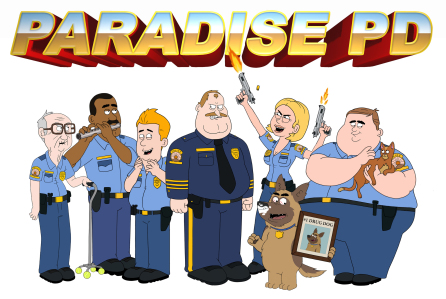
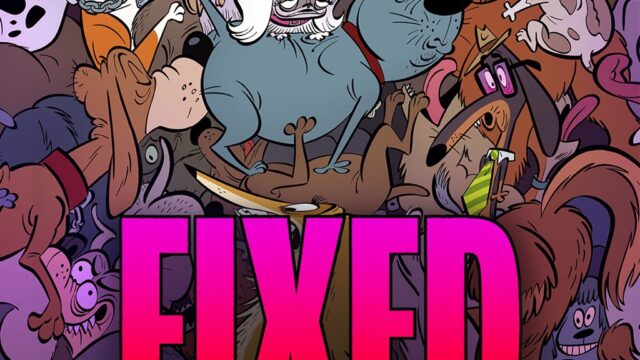
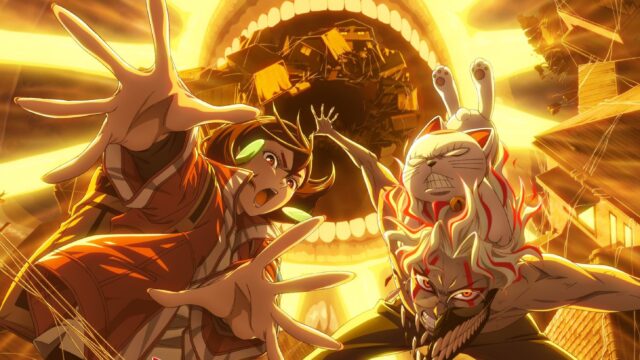
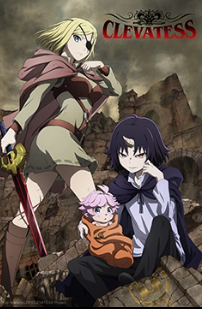
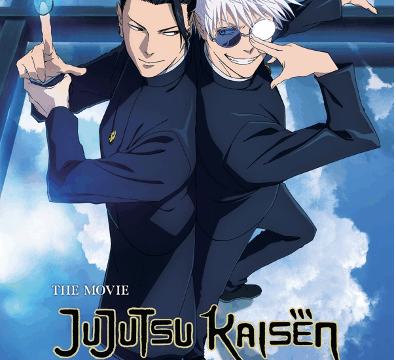





















"There are also other characters that come and go (also owned by the Warner Bros. Discovery conglomerate media company)."
Huh. Is that just referring to other characters from the show itself, or is this implying that the new season is going to have cameos from other WBD IPs